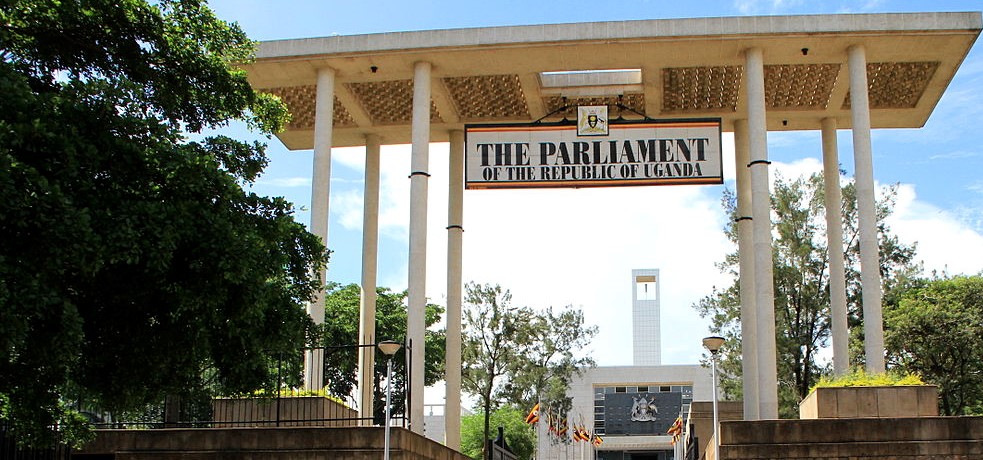By Edrine Wanyama |
The Collaboration on International ICT Policy for East and Southern Africa (CIPESA) has made a submission on emerging concerns from the proposed Computer Misuse (Amendment) Bill, 2022 (the Bill) to the Parliamentary Committee on Information and Communications Technology. In its submission, CIPESA analyses the changes proposed by the Bill which are a blow to online civil liberties in Uganda.
The private members Bill is seeking to amend the Computer Misuse Act of 2011and argues that existing laws “do not specifically address regulation of information sharing on social media” or are “not adequate to deter the vice”. The objectives of the amendment are: to enhance the provisions on unauthorised access to information or data; prohibit the sharing of any information relating to a child without authorisation from a parent or guardian; prohibit the sending or sharing of information that promotes hate speech; prohibit the sending or sharing of false, malicious and unsolicited information; and to restrict persons convicted of any offence under the Computer Misuse law from holding public office for a period of 10 years.
While the amendment could be justified by advancements in technology, upsurge in cybercrime, disinformation, and hate speech (clause 4), experience has shown that the law since enactment has been used to suppress digital rights including free expression and access to information.
The underlying provisions of the bill including clause 5 which seeks to prohibit the sending or sharing of unsolicited information through a computer, and clause 6 on prohibition of sharing malicious or misleading information, could be misused and abused by the government and its agencies to curtail sharing and dissemination of information, which would limit freedom of expression and access to information. Moreover, such restriction would counter the ruling by Supreme Court in Charles Onyango Obbo and Another v Attorney General that the penalisation of the publication of false news under Section 50 of the Penal Code is unconstitutional.
The Bill also duplicates existing laws including the Regulation of Interception of Communications Act, 2010 and Data Protection and Privacy Act in as far as it relates to unlawful interception of communications and unlawful access to and sharing of personal information under clause 2 and prohibition of processing and sharing information about children under clause 2.
Similarly, the Bill proposes the adoption of very punitive and prohibitive penalties which could not only hinder expression and access to information but also transparency and accountability in governance. The penalties proposed stretch to UGX 15 million (USD 3,900), imprisonment not exceeding 10 years, or both for unauthorised access, interception, recording and sharing of information under clause 2. On the other hand, sharing information related to children (clause 3), hate speech (clause 4), unsolicited information (clause 5) and misleading or malicious information (clause 6) are punished with imprisonment not exceeding seven years.
While specifically targeting leaders, Clause 7 of the Bill seeks to bar persons convicted under the Computer Misuse Act from holding public office for a period of 10 years, and to further dismiss convicted personsfrom public offices that they were holding. In addition to the restrictions under the Official Secrets Act it may discourage the disclosure of information by duty bearers where such disclosure would be necessary for enforcing transparency and accountability.
The Computer Misuse Act has been previously used to suppress digital rights including free expression and access to information. For instance, academic and social critic Dr. Stella Nyanzi was arrested for insulting the president in a social media post. In 2019, she was convicted of cyber harassment contrary to section 24 of the Act but acquitted of offensive communications, which is proscribed under section 25. Other individuals who have suffered the wrath of the same law include former presidential aspirant Henry Tumukunde who was arrested over alleged treasonable utterances in radio and television interviews, the Bizonto comedy group who were arrested over alleged offensive and sectarian posts, and author Kakwenza Rukirabashaija who was arrested, detained and prosecuted over offensive communication against the president and his son.
While the need for amendment of the Computer Misuse Act might be eminent to address emerging technologies, the proposed provisions are unfounded and redundant, and stipulate highly punitive penalties. They fail to address existing retrogressive provisions including section 24 on cyber harassment and section 25 on offensive communication, which have been used to criminalise freedom of expression. Moreover, trolling, cyber harassment, unauthorised sharing of intimate images, and other forms of online violence against women and girls are not addressed.
Read CIPESA’s full submission!

